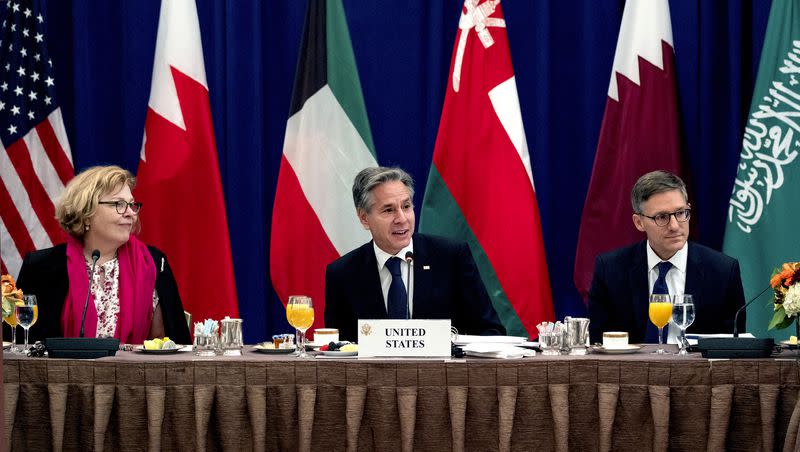World leaders meet at U.N. General Assembly to discuss global crises. What to expect

The United Nations General Assembly is holding its 78th session in New York this week, beginning Monday. The first day of general debate will begin Tuesday. As it convenes, the U.N. does not have one clear crisis to focus on — it has many, reports The Associated Press.
The Russian invasion of Ukraine is expected to again dominate this year’s talks, but there are also deep concerns about new political crises in Africa (including Niger and Sudan), economic instability, climate change, recent natural disasters, including an earthquake in Morocco, flooding in multiple places around the world, multiple wildfires and a lingering-and-mutating COVID-19 virus.
“We will be gathering at a time when humanity faces huge challenges, from the worsening climate emergency to escalating conflicts, the global cost-of-living crisis, soaring inequalities and dramatic technological disruptions,” António Guterres, the secretary-general of the U.N., said in a briefing last week.
Here’s what to expect
This year’s theme is “Rebuilding trust and reigniting global solidarity: Accelerating action on the 2030 Agenda and its Sustainable Development Goals toward peace, prosperity, progress and sustainability for all.”
The session will be presided over by Trinidad and Tobago’s Dennis Francis. Heads of state and government from 145 countries are expected to attend, including President Joe Biden, Brazilian President Luiz Inácio Lula da Silva and Ukrainian President Volodymyr Zelenskyy. This will be Zelenskyy’s first in-person appearance at the United Nations since Russia began its invasion of his country on Feb 24, 2021.
Several countries are sending representatives instead of their leaders, including France, the United Kingdom, China, Russia, India and Mexico.
Related
First Presidency greets president of U.N. General Assembly at church headquarters
How a United Nations conference at UVU turned into a service project
What is the General Debate?
According to the United Nations General Assembly website, General Debate is “the opportunity for Heads of State and Government to come together at the U.N. Headquarters and discuss world issues.”
Each speech is supposed to run 15 minutes. Booing or interruptions or immediate rebuttals are not permitted, explains the AP. Last year’s speeches averaged 19 minutes, while the longest speech in history ran 269 minutes. That one was from Cuba’s Fidel Castro in 1960.
Member states may rebut criticism expressed during the General Debate. Those happen at the end of the day and aren’t usually given by heads of states, but rather lower-level members of a country’s delegation. The first “right of reply” is limited to 10 minutes, and if a second happens, that one is limited to five minutes, according to the UNGA Rules of Procedure.
More than 3,000 journalists from around the world are expected to cover UNGA 78. Television tents are set up near the Rose Garden of the U.N. headquarters complex during the week of the General Assembly’s annual general debate and associated high-level meetings.
SDG Summit
On Sept. 18 and 19, the 2023 Sustainable Development Goals Summit will also convene. This summit marks the halfway point in getting to the 2030 deadline to meet the 17 goals adopted by the U.N. in 2015.
Those ambitious goals include ending poverty and hunger, increasing health and well-being around the world, achieving gender equality and ensuring that each child has access to a quality education.
As the halfway mark is reached, all of these goals are “seriously off track,” the U.N. reported in June. Sustainable Development Goals progress was already slow in the five years between adoption in 2015 and the beginning of the global pandemic in 2020. Once the pandemic hit, progress virtually stopped.
Undersecretary-General for Economic and Social Affairs Li Junhua said in a foreword that the pandemic saw the largest decline in childhood vaccinations in three decades, an increase in tuberculosis and malaria deaths, and learning losses in 80% of the 104 countries studied. It also interrupted three decades of progress in reducing poverty, and produced the largest rise in inequality between countries in three decades, reports The Associated Press.
How can I watch?
The United Nations will be livestreaming the proceedings. It also has a live blog and an active presence on X.
Holly Richardson is the editor of Utah Policy

